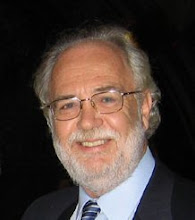Some readers of this blog may recall that I have been seeking information via a number of discussion lists and fora on the whereabouts of Philippe Delcloque’s History of CALL website that was created to commemorate the beginning of the new millennium. Although the website has now closed down, a snapshot PDF version of the site has been unearthed by Ana Gimeno, President of EUROCALL. I have now incorporated this PDF document into the ICT4LT site at the following location:
http://www.ict4lt.org/en/History_of_CALL.pdf
I have also agreed to take on the task of recording new developments in the History of CALL. To a large extent I have been doing this anyway as Editor of the ICT4LT website, but it’s been a piecemeal job. I have begun to collate new developments systematically in Section 2 (History of CALL) of Module 1.4 at the ICT4LT website, with relevant internal links within the ICT4LT website and a few external links:
http://www.ict4lt.org/en/en_mod1-4.htm
Comments and suggestions for additions welcomed.
Sunday 25 March 2007
Tuesday 20 March 2007
BBC Jam educational website suspended
It’s 20 March 2007. Today is the day on which the BBC suspends its Web-based package of learning materials for schools, which was released under the name "BBC Jam". BBC Jam has been the subject of controversy ever since it was announced that the BBC would be allowed to spend £150 million pounds worth of public funding, namely TV licence payers’ money, developing the so-called Digital Curriculum, later to be renamed BBC Jam. You can read more about it here:
The Reckon (Regulation and Competition Economics) website:
http://www.reckon.co.uk/open/BBC_Digital_Curriculum
The Guardian newspaper, 14 March 2007
http://education.guardian.co.uk/elearning/story/0,,2033611,00.html
The decision to suspend BBC Jam is mainly the result of pressure from publishers’ associations and commercial online companies who complained that BBC Jam has had a negative impact on their businesses. This raises a number of important issues, for example the morality of allocating such a large sum of money to a public organisation, thereby distorting market forces, and to what extent the BBC’s move towards the production of Web-based educational materials rather than educational TV broadcasts was desirable. Bear in mind that the unit that produced the excellent series of TV broadcasts for adult learners of foreign languages has now been closed down.
BBC Jam aimed to cover most of the secondary school curriculum. Some materials for learners of modern foreign languages have been produced, but reactions to them have been mixed. Many teachers welcomed them for their refreshing and lively approach, but they have also been criticised for their confusing interface, linearity and lack of interaction, e,g. Donald Clark’s blog:
http://donaldclarkplanb.blogspot.com/2006/01/bbc-jam-french-sticky-mess.html
Reactions?
The Reckon (Regulation and Competition Economics) website:
http://www.reckon.co.uk/open/BBC_Digital_Curriculum
The Guardian newspaper, 14 March 2007
http://education.guardian.co.uk/elearning/story/0,,2033611,00.html
The decision to suspend BBC Jam is mainly the result of pressure from publishers’ associations and commercial online companies who complained that BBC Jam has had a negative impact on their businesses. This raises a number of important issues, for example the morality of allocating such a large sum of money to a public organisation, thereby distorting market forces, and to what extent the BBC’s move towards the production of Web-based educational materials rather than educational TV broadcasts was desirable. Bear in mind that the unit that produced the excellent series of TV broadcasts for adult learners of foreign languages has now been closed down.
BBC Jam aimed to cover most of the secondary school curriculum. Some materials for learners of modern foreign languages have been produced, but reactions to them have been mixed. Many teachers welcomed them for their refreshing and lively approach, but they have also been criticised for their confusing interface, linearity and lack of interaction, e,g. Donald Clark’s blog:
http://donaldclarkplanb.blogspot.com/2006/01/bbc-jam-french-sticky-mess.html
Reactions?
Friday 2 March 2007
Digital language labs
A one-day symposium entitled "Digital Language Labs: Exploring Good Practice", organised by the University of Ulster's Centre for Excellence in Multimedia Language Learning, is due to take place on 15 March 2007 at SOAS, University of London. Full details can be found on the Centre's website:
http://www.arts.ulster.ac.uk/lanlit/cetl/news/2007/uk_conference2.html
ICT4LT Module 3.1 mentions digital labs and includes five case studies: Managing a multimedia language centre:
http://www.ict4lt.org/en/en_mod3-1.htm
See also Section 2.2.1 of ICT4LT Module 2.2 headed "Media players and digital language labs":
http://www.ict4lt.org/en/en_mod2-2.htm
See also this publication at the CILT/ALL Languages ICT website:
Davies G., Bangs P., Frisby R. & Walton E. (2005) Setting up effective digital language laboratories and multimedia ICT suites for Modern Foreign Languages, London: CILT:
http://www.languages-ict.org.uk/managing/digital_language_labs.pdf
It would be interesting to hear from people who are using digital labs and how useful/effective they have found them.
http://www.arts.ulster.ac.uk/lanlit/cetl/news/2007/uk_conference2.html
ICT4LT Module 3.1 mentions digital labs and includes five case studies: Managing a multimedia language centre:
http://www.ict4lt.org/en/en_mod3-1.htm
See also Section 2.2.1 of ICT4LT Module 2.2 headed "Media players and digital language labs":
http://www.ict4lt.org/en/en_mod2-2.htm
See also this publication at the CILT/ALL Languages ICT website:
Davies G., Bangs P., Frisby R. & Walton E. (2005) Setting up effective digital language laboratories and multimedia ICT suites for Modern Foreign Languages, London: CILT:
http://www.languages-ict.org.uk/managing/digital_language_labs.pdf
It would be interesting to hear from people who are using digital labs and how useful/effective they have found them.
Subscribe to:
Posts (Atom)




